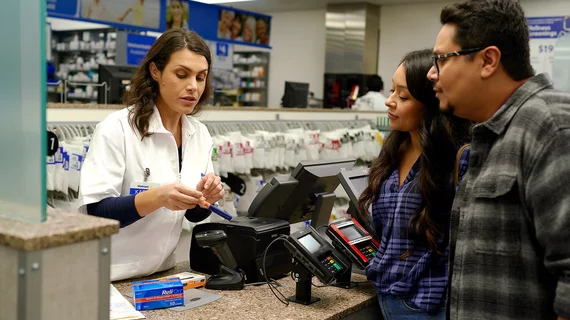Walmart launches Healthcare Research Institute
Retail giant Walmart has launched the Healthcare Research Institute (WHRI) aiming to increase access to clinical research.
WHRI is focused on interventions and medications that can make a difference in underrepresented communities, such as older adults, rural residents, women and minority populations. The institute first plans to focus on inclusion in studies for chronic conditions and treatments that should include people from these communities.
The launch of the institute comes as Walmart has expanded its healthcare offerings over the past several years, including recently adding more virtual care options for diabetes management. Walmart also acquired MeMD, a telehealth care provider, in 2021 and expanded its services to urgent, behavioral and primary care nationwide via telehealth as a result. Walmart rebranded MeMD as Walmart Health Virtual Care this year.
According to Walmart, clinical trials have not been representative of the population at large, often recruiting participants who live near research centers and are financial able to participate. Overwhelmingly, these studies include mostly white participants (75%), with just 11% of Hispanic participants, 8% Black and 6% Asian, according to the Food and Drug Administration (FDA). According to Walmart, research should represent all populations.
“At Walmart, we want to help ensure all our customers have access to high quality, affordable and convenient healthcare resources, including innovative research,” John Wigneswaran, MD, Walmart’s chief medical officer, said in a statement. “We know our customers are interested in participating in healthcare research, but many have not had access until now. We are already making an impact for our customers and for medical research, by raising patient trust and engagement in their care.”
The majority of Americans (90%) live within 10 miles of a Walmart, which means the retailer can meet communities where they live and work. The retailer is working with a wide range of study partners, including clinical research organizations, pharmaceutical companies and academic medical centers, including CTI Clinical Trial & Consulting Services and Laina Enterprises. According to Walmart, its initial work is reporting a referral rate of three times the industry benchmark.
“The efforts by Walmart in research are innovative and impactful – it is clear that the intention behind their foray into this space is to genuinely make a difference for patients of all ages, race and gender in their ability to access research,” Bill Hawkins, chairman of the board, Duke University Health, said in a statement. “This initiative will support individual patient health as well as the health of numerous communities home to Walmart stores.”
Walmart also launched MyHealthJourney, a digital tool for patients to simplify their care with easy access to electronic medical records and insurance information. Patients also receive reminders for care services and research opportunities to help them keep their health on track.

